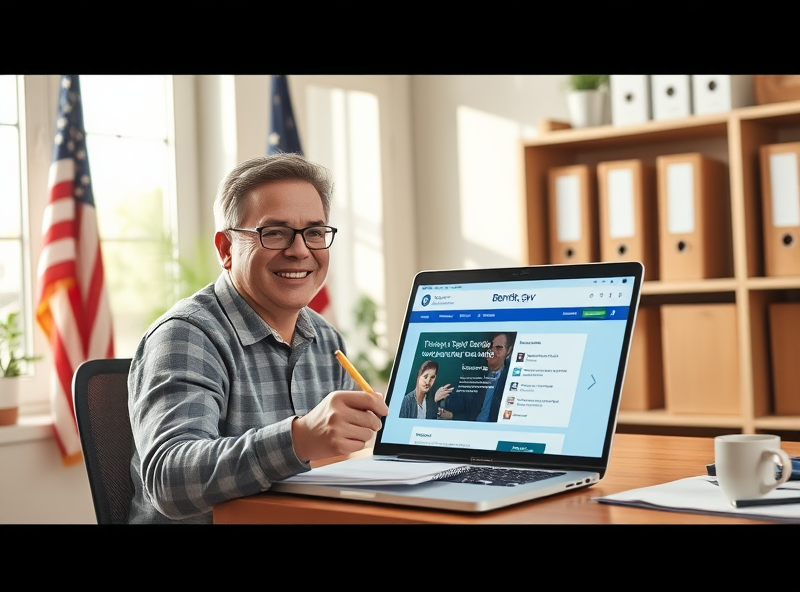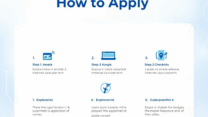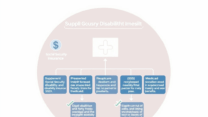
How to Find U.S. Government Subsidies & News: A Simple Guide
Using Government Portals to Find Personalized Subsidy Options

Navigating the world of U.S. government subsidies can feel overwhelming, but thankfully, official government portals make it easier than ever to find personalized support based on your needs. These platforms are designed to help individuals, families, and businesses discover federal and state assistance programs tailored to their specific situations.
One of the most helpful tools is Benefits.gov, a comprehensive resource that offers a free and confidential Benefits Finder. By answering a few questions about your household, income, employment, and health status, the portal matches you with potential subsidies and programs you may qualify for. This includes assistance for housing, food, healthcare, education, and more. You can access the Benefits Finder here: https://www.benefits.gov/benefit-finder
Another valuable portal is Grants.gov, which is ideal for those seeking federal grants, especially for educational institutions, non-profits, and small businesses. While not all grants are available to individuals, this platform provides a searchable database and clear eligibility criteria for each opportunity.
For small business owners, the U.S. Small Business Administration (SBA) website is an excellent resource. It offers information on federal funding programs, including loans and grants, and provides guidance on how to apply.
Using these portals not only saves time but also ensures you’re accessing legitimate and up-to-date information. Always make sure you’re on a .gov website to avoid scams. By taking advantage of these tools, you can uncover financial support that may significantly improve your quality of life or help your business grow.
Using Government Portals to Find Personalized Subsidy Options

If you’re looking for financial help through U.S. government subsidies or grants, the best place to start is official government portals. These websites are designed to guide you through available programs based on your personal situation—whether you’re a student, small business owner, farmer, or someone in need of housing or healthcare assistance.
The most reliable and user-friendly portal is Benefits.gov. This site offers a free tool called the “Benefit Finder,” which asks you a series of questions about your income, employment status, family size, and other personal details. Based on your answers, it generates a customized list of federal and state programs you may qualify for. This saves you time and helps you avoid scams by directing you only to verified programs.
Another helpful site is Grants.gov, which focuses specifically on federal grant opportunities. If you’re looking to apply for a grant—especially for education, research, or nonprofit work—this is where you can search, register, and submit applications all in one place.
Both of these portals are updated regularly and are backed by the U.S. government, ensuring the information is accurate and current. Before applying, make sure to read eligibility requirements carefully and prepare any necessary documents like tax returns or identification.
Helpful link: https://www.benefits.gov/
Searching for News Articles About Subsidies Effectively

Keeping up with the latest news about U.S. government subsidies can help you stay informed about financial opportunities, policy changes, and economic trends that may directly impact your life or business. But with so much information online, how do you find the most accurate and relevant news articles efficiently?
Start by using trusted news sources and government websites. Reputable media outlets like The New York Times, Reuters, or Bloomberg often cover subsidy-related news with in-depth analysis. However, for the most accurate and up-to-date information, the best place to begin is the official U.S. government websites such as https://www.usa.gov/benefits or https://www.grants.gov/.
Use targeted search terms when looking for news articles. Instead of just typing “subsidies,” try more specific queries like “2024 U.S. energy subsidies update” or “Biden administration agriculture subsidy news.” Adding the year or the sector (e.g., healthcare, housing, farming) helps narrow down the results.
Google News is also a powerful tool. Use its advanced search features to filter by date, region, or publication. This ensures you’re seeing the most recent and relevant articles. You can also set up Google Alerts with keywords like “federal subsidies” or “U.S. government grants” to receive updates directly to your inbox.
Finally, check the credibility of the source before trusting the information. Look for articles published by known journalists or organizations, and avoid websites that lack transparency or show signs of misinformation.
Staying informed about subsidies can help you take advantage of available resources, make smarter financial decisions, and understand how government policies may affect your industry or community.
Helpful link: https://www.usa.gov/benefits
Following Official Channels for the Latest Subsidy Announcements

Staying updated on U.S. government subsidies can significantly benefit individuals, families, and small businesses. One of the most reliable ways to do this is by following official government channels. These sources provide timely, accurate, and detailed information about new and ongoing subsidy programs.
Start by subscribing to updates from key federal websites like Grants.gov and Benefits.gov. Grants.gov is the primary source for federal grant announcements, while Benefits.gov helps you find government benefits you may be eligible for based on your personal situation. Both platforms allow you to create an account and receive customized alerts.
Additionally, follow the official social media accounts of agencies such as the U.S. Department of Agriculture (USDA), Department of Energy (DOE), and the Small Business Administration (SBA). These agencies frequently post updates about new subsidies, application deadlines, and eligibility changes.
For state-specific programs, visit your state government’s official website. Many states have dedicated portals for local grants and subsidies, especially in areas like housing, education, and energy efficiency.
Using these official channels ensures that you receive the most accurate and up-to-date information, helping you make informed decisions and avoid scams.
Helpful link: https://www.benefits.gov/







